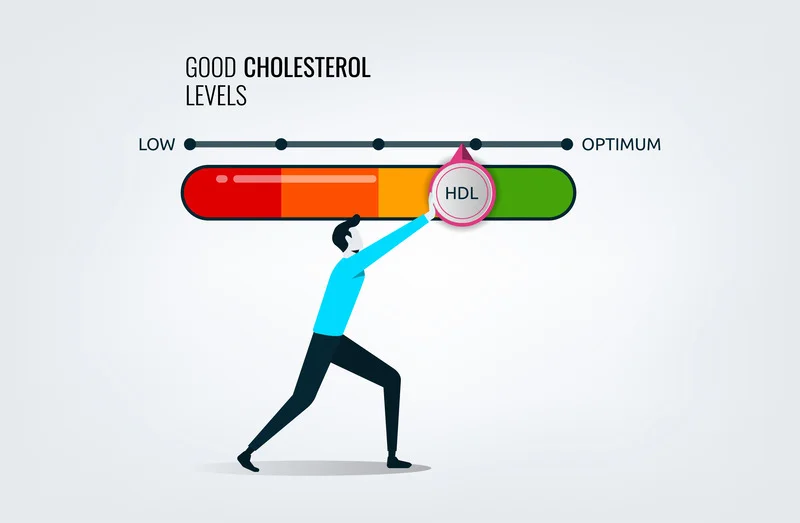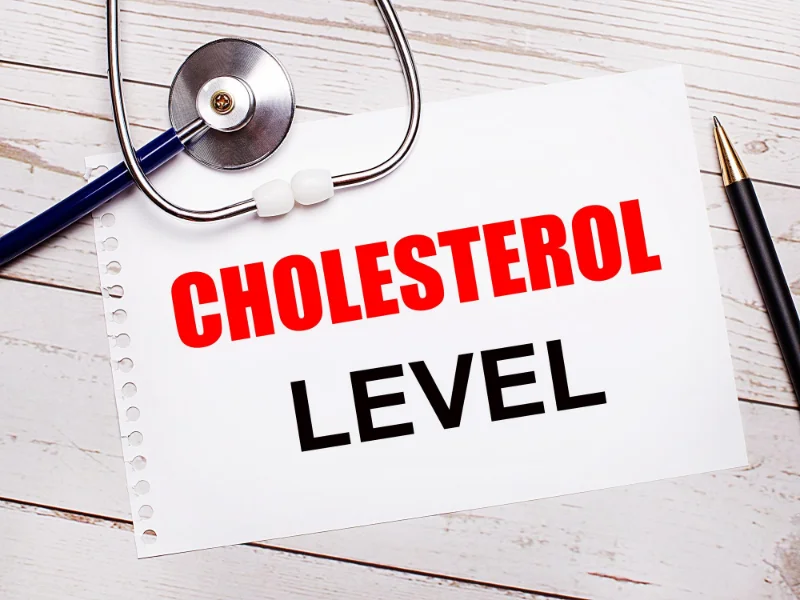Understanding cholesterol is important for our overall health and well-being, especially if we are 30 years old or above. There are different types of cholesterol that the body produces, and it’s essential to understand their roles in order to develop an effective healthcare plan. Cholesterol plays a major role in providing energy, producing hormones, and making cell membranes – so too much or too little can be dangerous for us. In this article, you will learn about the various types of cholesterol and how to maintain healthy levels - all supported by references from reputable sources!
Overview of Cholesterol and its Types
Cholesterol is a vital substance found in every cell of our body, which is crucial for the optimal functioning of our body. Our liver produces it, and it is also obtained from the food we eat. There are two types of cholesterol - Low-density lipoprotein (LDL) and High-density lipoprotein (HDL). LDL, also called "bad" cholesterol, can build up on the walls of our arteries, causing blockages and increasing the risk of heart disease. On the other hand, HDL, also known as "good" cholesterol, helps remove LDL from the bloodstream, reducing the risk of heart disease. Therefore, maintaining a healthy cholesterol level is vital for our overall health and well-being. So, it is important to clearly understand the different types of cholesterol and their significance in our body.
a. Definition of Cholesterol
Cholesterol is a type of fat found in every body cell and is essential for maintaining normal bodily functions. However, too much cholesterol in our blood can lead to serious health problems such as heart disease and stroke. Cholesterol can come from two sources, our body produces it naturally, and we can also get it from the food we eat. Therefore, it is important to understand the different types of cholesterol, as not all of them are harmful to our health.
b. Understanding the Different Types of Cholesterol
Cholesterol may be a commonly discussed topic, but most people need to learn what it is and its different types. Cholesterol is a waxy, fat-like substance found in all body cells and is essential for the body's functions. However, too much of the wrong kind of cholesterol can harm our health. The two main types of cholesterol are low-density lipoprotein (LDL) and high-density lipoprotein (HDL).

HDL (High-Density Lipoprotein) – The “Good” Type
HDL, or high-density lipoprotein, has been dubbed the "good" cholesterol for a reason. Unlike LDL (low-density lipoprotein), which can clog arteries and lead to heart disease, HDL helps remove excess cholesterol from the blood and deliver it to the liver for processing. As a result, it helps remove bad cholesterol, or low-density lipoprotein (LDL), from your arteries. This can lower your risk of heart disease and other health issues. This is why it's important to have high levels of HDL in your blood. But how can you increase your HDL levels? Regular exercise, quitting smoking, and eating a healthy diet can help improve your numbers. So the next time you're pondering which type of cholesterol is better for you, remember that HDL is the way to go.
LDL (Low-Density Lipoprotein) – The “Bad” Type
Low-Density Lipoprotein, or LDL, is often referred to as the “bad” cholesterol because it can lead to the buildup of plaque in your arteries. This can eventually increase the risk of heart disease and stroke. While our body needs some cholesterol to function properly, too much LDL can harm our health. Therefore, it’s important to manage your LDL levels through regular exercise, a healthy diet, and medications if necessary. The good news is that by taking control of your health and monitoring your LDL levels, you can lower your risk of heart disease and lead a happier, healthier life.
Triglycerides – Another Kind of Fatty Substance in Your Bloodstream
Your blood is more than just red and white cells; it’s a complex mixture of various substances, including triglycerides, a type of fat that circulates through your blood. Triglycerides play a pivotal role in providing energy to your body’s cells, but they can also put your health at risk if their levels are too high. High triglyceride levels have been associated with an increased risk of heart disease, stroke, and other chronic conditions. Therefore, it’s important to maintain a healthy balance of triglycerides in your blood by following a healthy lifestyle, which includes eating a balanced diet, exercising regularly, and limiting alcohol consumption. So, the next time you think about your blood, remember there’s more to it than meets the eye.
How to Manage High Cholesterol Levels
High cholesterol is a widespread problem among people of all ages. It can lead to several chronic health issues, so managing this condition is crucial. Fortunately, you can keep your cholesterol levels in check with a few lifestyle changes. Firstly, make sure to follow a healthy diet rich in fruits, vegetables, and whole grains. Additionally, maintain a regular exercise routine to keep your body in shape and reduce the risk of heart disease. Furthermore, consider quitting smoking and limiting alcohol intake to lower cholesterol levels. Finally, take prescribed medication and conduct routine checks with your healthcare provider to keep your cholesterol in check. With these simple steps, you can take control of your health and lower your cholesterol levels.
Normal ranges of HDL, LDL, and Triglycerides, and what do high and low values of each of them indicate
Maintaining healthy levels of HDL (the “good” cholesterol), LDL (the “bad” cholesterol), and triglycerides is crucial for heart health. HDL helps remove LDL from the bloodstream, while LDL can build up in arteries and increase the risk of heart disease. Triglycerides are another type of fat in the blood that can also contribute to heart disease if levels are too high. Generally, a desirable level of HDL is above 60 mg/dL, while LDL should be kept below 100 mg/dL. Triglyceride levels should be under 150 mg/dL. If any of these is too low, it may indicate a different health problem, while high levels could increase the risk of heart disease and other health issues. So it’s important to know your numbers and work with your healthcare provider to maintain healthy levels.
In conclusion, understanding the basics of cholesterol is paramount for a healthy lifestyle. Knowing the different types of lipoproteins in your bloodstream comes with numerous benefits, such as the ability to manage your overall cholesterol level. Several methods exist to keep your cholesterol levels in check, and it’s important that you stay on top of them. Educating yourself about balance will help ensure long-term health and avoid certain health problems down the road; it could mean a higher quality of life too! Now that you’ve learned everything there is to know about cholesterol, why not do yourself a favor and get your Lipid Profile tested from Cura4U? Take control of your health today and ensure you have all the information you need before making educated decisions regarding your wellness.
Our clinical experts continually monitor the health and medical content posted on CURA4U, and we update our blogs and articles when new information becomes available. Last reviewed by Dr. Saad Zia on May 6th, 2023.
References
Blood Cholesterol - What is Blood Cholesterol? | NHLBI, NIH- https://www.nhlbi.nih.gov/health/blood-cholesterol
Therapeutic Lifestyle Changes (TLC) To Lower Cholesterol | NHLBI, NIH- https://www.nhlbi.nih.gov/education/TLC-Therapeutic-Lifestyle-Changes-Lower-Cholesterol
What is Cholesterol? | American Heart Association- https://www.heart.org/en/health-topics/cholesterol/about-cholesterol
High cholesterol - Symptoms and causes - Mayo Clinic- https://www.mayoclinic.org/diseases-conditions/high-blood-cholesterol/symptoms-causes/syc-20350800













